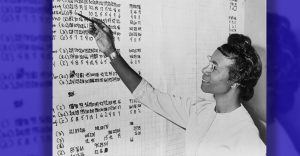Opinion
Opinion: Trump Doesn’t Want Us Counted in the 2020 Census

The African American community must be counted in the 2020 Census; if we’re not the Trump administration will be able to further deny us political power and Federal resources. The answers to many important questions about our community come from Census data which is collected every’ ten years. This data shows how African American populations change in Alameda County, it counts how many senior citizens reside in each city or unincorporated area, and it is used to distribute resources and make policy decisions that affect the lives of all Alameda County residents.
The Census is our official population count; its data is used to set boundaries for local jurisdictions like district lines, congressional seats, state legislative districts, school districts, and voting precincts. If African Americans are under-counted, it will be just one more way that our political power is taken away.
Simply put: an inaccurate Census count means unequal representation. A significant undercount could cause California, and our community, to lose representation and power at the Federal level. Our voice and our rights are at stake!
The Urban Institute predicts that there could be a major undercount of nearly 1.7 million African Americans in the upcoming 2020 Census. According to the Census Bureau, the 2010 Census overcounted white residents by nearly 1 percent but failed to count 1.5 million people of color including 2.1 percent of all African Americans.
If we are undercounted, racial inequalities and the difference between the ‘haves’ and the ‘have-nots’ will continue to widen because the valuable information the Census gathers will not paint an accurate picture of our community.
California receives $76 billion in Federal funding for essential services that are tied directly to the Census count. Programs like Medicare. Me- di-Cal, Cal-Fresh and EBT, transportation, the Section 8 voucher program, K-12 education, and more are all paid for in part from these Federal dollars. Each person counted brings $ 1,000 back to our community – that’s nearly $10,000 per person over the next decade!
By getting counted, you are ensuring that these programs can continue to benefit our community, and there is no risk to participating. Once you’ve answered the Census, it is against the law for your information to be shared with any other agencies within the government. Your information will only ever be used for statistical purposes and will always be protected by law.
In this political climate, it’s more important than ever that we stand up for our political power.
Unfortunately, Census 2020 presents a number of new challenges that could lead to an undercount, such as the Trump Administration’s attempt to include a citizenship question (though that was recently blocked by the Supreme Court), a new and untested digital questionnaire, growing distrust in government, and concerns over data privacy. My office has been working in partnership with the Alameda County Complete Count Committee to combat these challenges and reach our “hard-to-count” populations. We are organizing to ensure that seniors will have access to participation through Questionnaire Assistance Centers at every senior center and library, as well as at workshops in multiple languages. We’ll also be holding Census events at the REACH Ashland Youth Center – where we know our youth and families gather.
We all have a role to play in ensuring a complete count on Census 2020. Here are a few things you can do today: visit www.acgov.org/Census2020
census2020/ for information, resources, and a video, and spread the word about the importance of getting counted to your friends, family and neighbors.
Census 2020 begins in March 2020. Let’s stand together and fight for the resources and representation we deserve. Our community counts. Our community belongs.
Activism
Oakland Post: Week of November 26 – December 2, 2025
The printed Weekly Edition of the Oakland Post: Week of November 26 – December 2, 2025

To enlarge your view of this issue, use the slider, magnifying glass icon or full page icon in the lower right corner of the browser window.
Activism
Oakland Post: Week of November 19 – 25, 2025
The printed Weekly Edition of the Oakland Post: Week of November 19 – 25, 2025

To enlarge your view of this issue, use the slider, magnifying glass icon or full page icon in the lower right corner of the browser window.
Activism
Oakland Post: Week of November 12 – 18, 2025
The printed Weekly Edition of the Oakland Post: Week of November 12 – 18, 2025

To enlarge your view of this issue, use the slider, magnifying glass icon or full page icon in the lower right corner of the browser window.
-

 Activism4 weeks ago
Activism4 weeks agoOakland Post: Week of November 12 – 18, 2025
-

 Activism3 weeks ago
Activism3 weeks agoIN MEMORIAM: William ‘Bill’ Patterson, 94
-

 Activism4 weeks ago
Activism4 weeks agoHow Charles R. Drew University Navigated More Than $20 Million in Fed Cuts – Still Prioritizing Students and Community Health
-

 Bay Area4 weeks ago
Bay Area4 weeks agoNo Justice in the Justice System
-

 #NNPA BlackPress3 weeks ago
#NNPA BlackPress3 weeks agoLewis Hamilton set to start LAST in Saturday Night’s Las Vegas Grand Prix
-

 #NNPA BlackPress2 weeks ago
#NNPA BlackPress2 weeks agoBeyoncé and Jay-Z make rare public appearance with Lewis Hamilton at Las Vegas Grand Prix
-

 Activism2 weeks ago
Activism2 weeks agoOakland Post: Week of November 19 – 25, 2025
-

 #NNPA BlackPress4 weeks ago
#NNPA BlackPress4 weeks agoThe Perfumed Hand of Hypocrisy: Trump Hosted Former Terror Suspect While America Condemns a Muslim Mayor














































